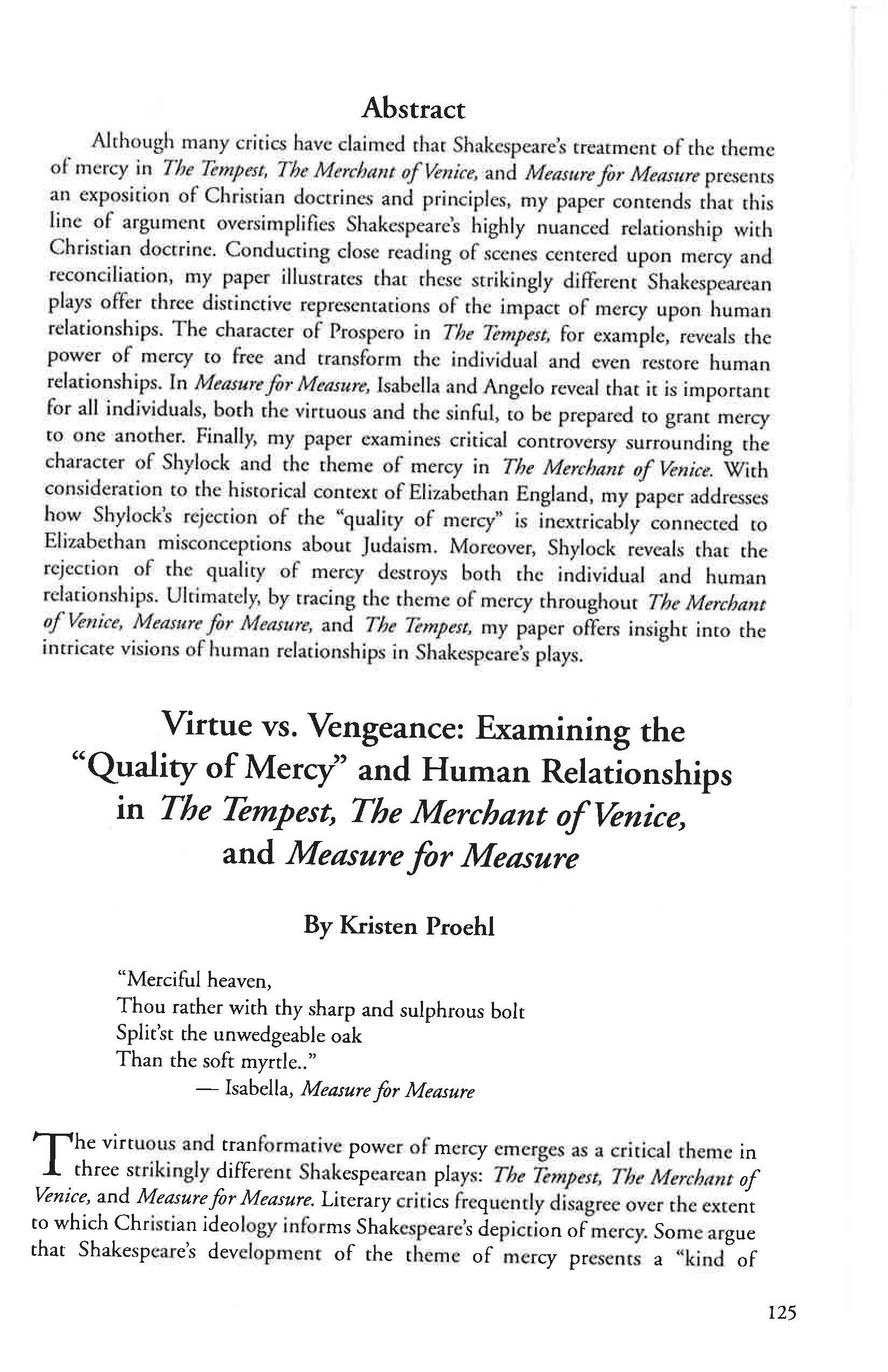Virtue vs. Vengeance: Examining the "Quality of Mercy'' and Human Relationships in The Tempest, The Merchant of Venice, and Measure for Measure
Main Article Content
Abstract
Although many critics have claimed that Shakespeare's treatment of the theme of mercy in The Tempest, The Merchant of Venice, and Measure for Measure presents an exposition of Christian doctrines and principles, my paper contends that this line of argument oversimplifies Shakespeare's highly nuanced relationship with Christian doctrine. Conducting close reading of scenes centered upon mercy and reconciliation, my paper illustrates that these strikingly different Shakespearean plays offer three distinctive representation of the impact of mercy upon human relationships. The character of Prospero in The Tempest for example, reveals the power of mercy to free and transform the individual and even restore human relationships. In Measure for Measure, Isabella and Angelo reveal that it is important for all individuals, both the virtuous and the sinful to be prepared to grant mercy to one another. Finally, my paper examines critical controversy surrounding the character of Shylock and the theme of mercy in The Merchant of Venice. With consideration to the historical context of Elizabethan England, my paper addresses how Shylock's rejection of the "quality of mercy" is inextricably connected to Elizabethan misconceptions about Judaism. Moreover, Shylock reveals that the rejection of the quality of mercy destroys both the individual and human relationships. Ultimately, by tracing the theme of mercy throughout The Merchant of Venice, Measure for Measure, and The Tempest, my paper offers insight into the intricate vision of human relationships in Shakespeare' plays.
